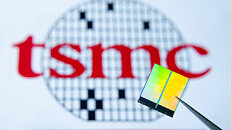TSMC in collaboration with the National Taiwan University (NTU) and the Massachusetts Institute of Technology (MIT) have made a significant breakthrough in the development of 1-nanometer chips. The joint announcement comes after IBM earlier this month published news of their 2-nanometer chip development. The researchers found that the use of semi-metal bismuth (Bi) as contact electrodes for the 2D matrix can greatly reduce resistance and increase current. This discovery was first made by the MIT team before then being further refined by TSMC and NTU which will increase energy efficiency and performance in future processors. The 1-nanometer node won't be deployed for several years with TSMC planning to start 3-nanometer production in H2 2022.

View at TechPowerUp Main Site

View at TechPowerUp Main Site






